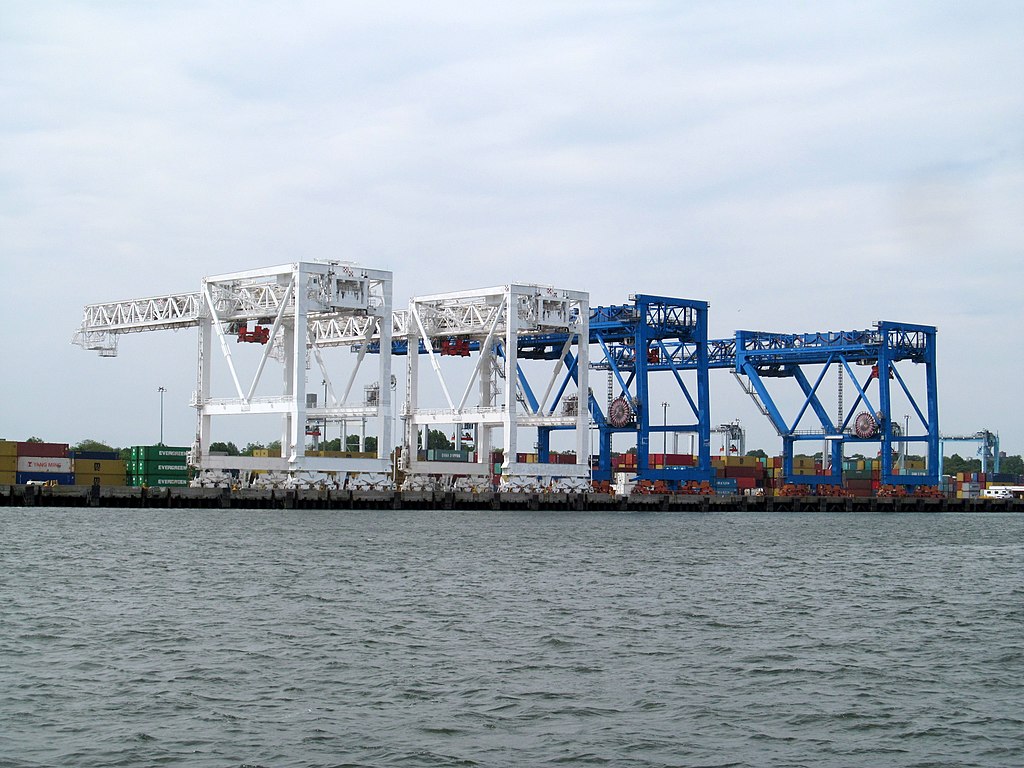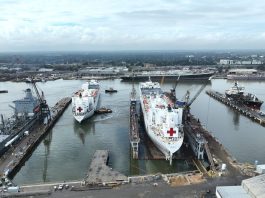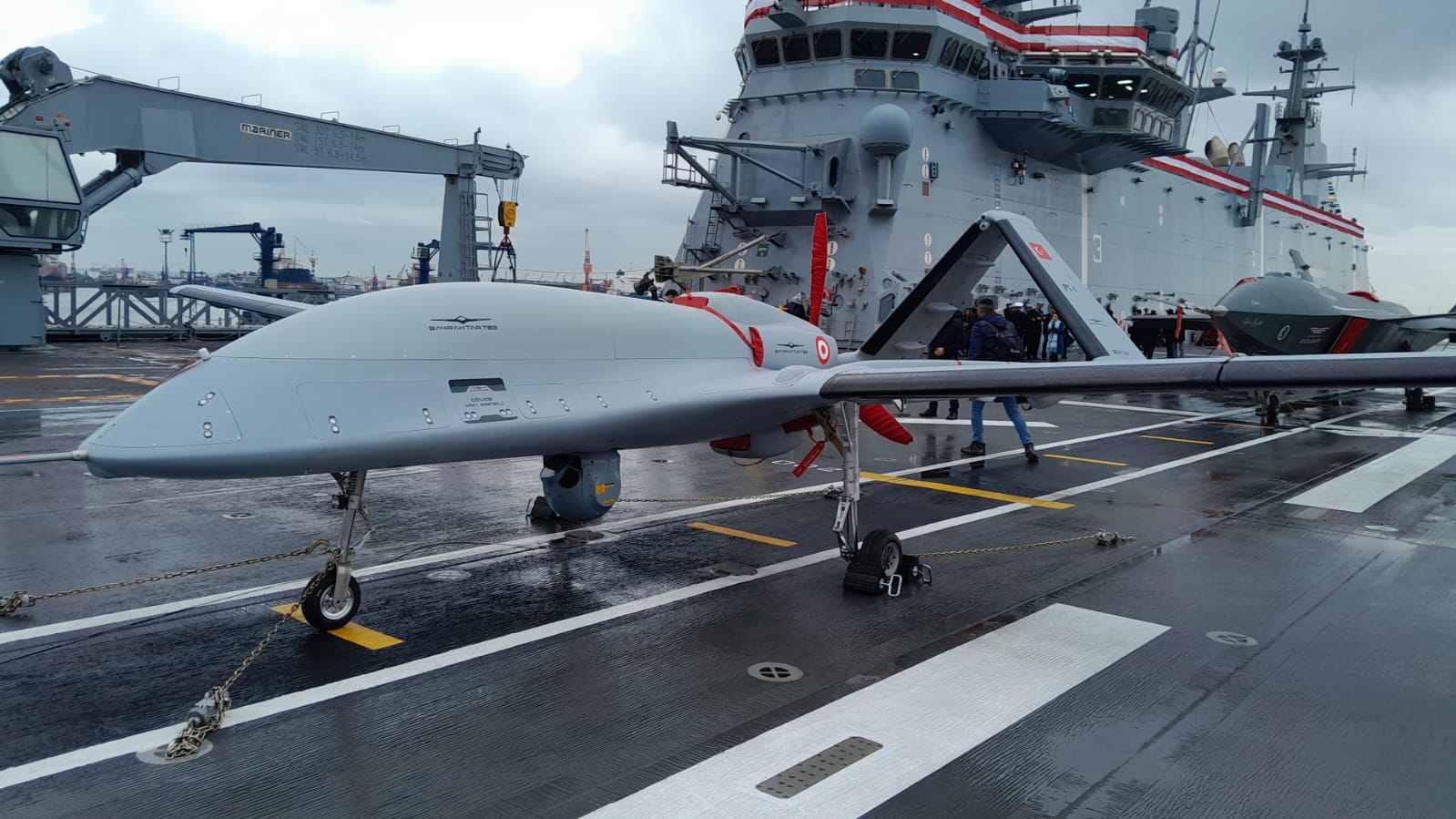In a recent interview on Bloomberg Television’s Surveillance, Gene Seroka, executive director of the Port of Los Angeles, voiced concerns about the potential national security risks posed by Chinese-made cranes at US maritime gateways. Seroka highlighted the challenge of addressing this vulnerability due to a shortage of alternative suppliers for these essential container-moving machines, underscoring implications for military operations and national defense.
The Biden administration shares these concerns, particularly regarding the more than 200 ship-to-shore cranes manufactured by China that currently operate at US ports. These cranes, produced by Shanghai Zhenhua Heavy Industries Co., can be remotely serviced and programmed, raising cybersecurity worries that extend beyond commercial operations to military logistics and national defense infrastructure.
Recognizing the strategic importance of ports for military logistics, the White House is set to issue an executive order aimed at bolstering cybersecurity measures at US ports and maritime facilities. This move reflects broader efforts to enhance national defense capabilities and safeguard critical infrastructure against cyber threats and potential adversarial interference.
While acknowledging the risk posed by Chinese-made cranes, Seroka emphasized the lack of alternatives, posing the question: “Who else makes the cranes?” He underscored the importance of exploring strategies to develop a domestic industry for such critical infrastructure, aligning with broader national security objectives to reduce dependence on foreign sources for essential technologies and capabilities.
In the face of these security concerns, Chinese Foreign Ministry spokeswoman Mao Ning dismissed allegations of using cranes for data collection as “completely absurd,” highlighting the need to balance security measures with efforts to maintain open and efficient global trade.
Efforts are underway to mitigate reliance on Chinese-made cranes, with a US-based subsidiary of Japanese manufacturing conglomerate Mitsui E&S Co. planning to expand its domestic crane capacity. This initiative aligns with the allocation of $20 billion in federal funds for port infrastructure, reinforcing the interconnectedness of economic, industrial, and military security considerations.
The issue remains a focal point for both commercial and military interests, emphasizing the importance of enhancing security measures while exploring avenues for domestic production to safeguard national interests and bolster military readiness in an increasingly complex geopolitical landscape.




